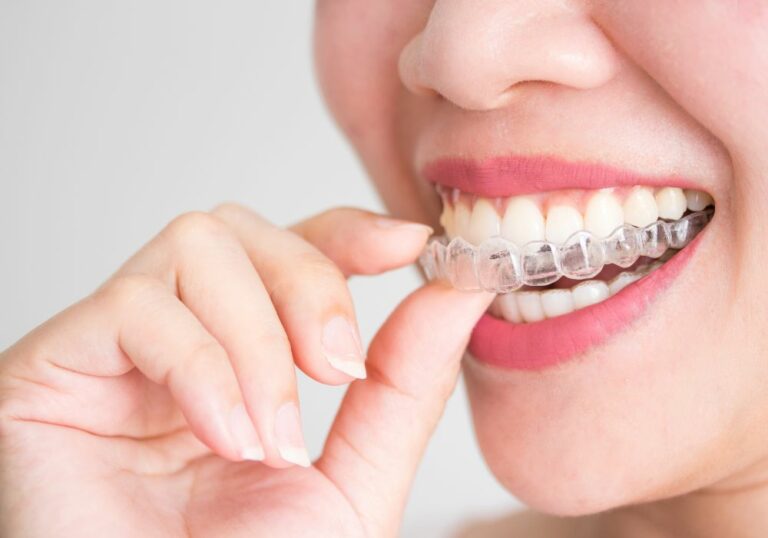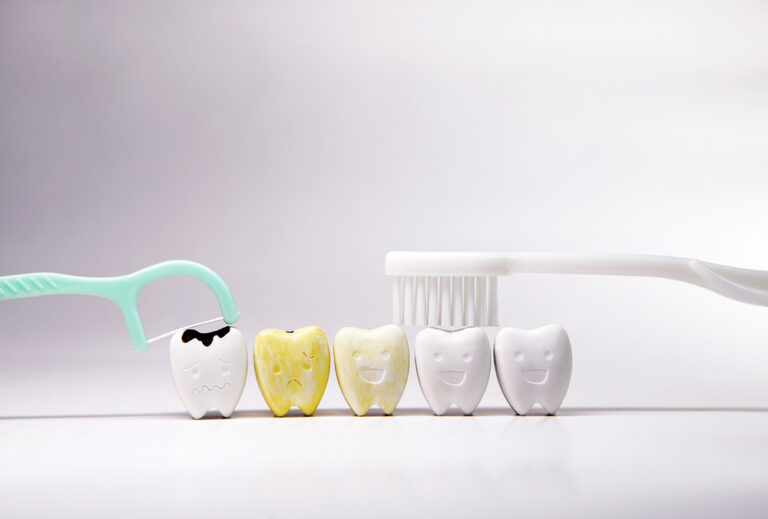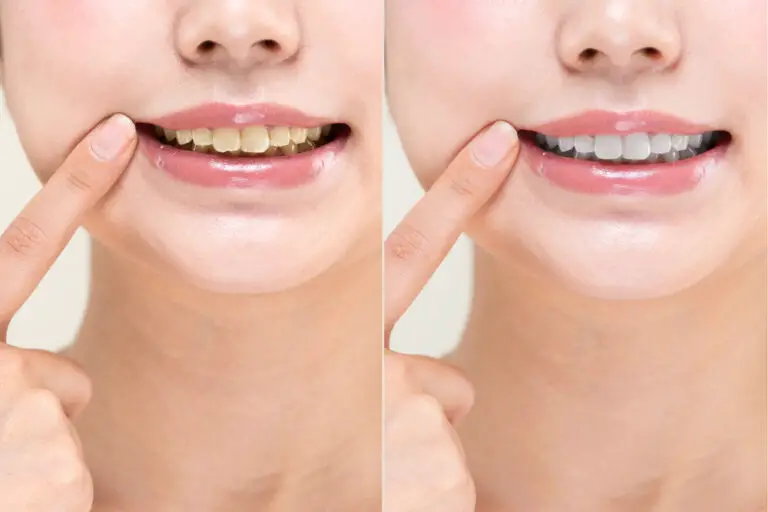Are you self-conscious about your teeth? Do you feel like it’s too late to fix them? The truth is, it’s never too late to improve your smile. Thanks to modern dentistry, there are a variety of options available to help you achieve the smile you’ve always wanted.
Whether you’re dealing with crooked teeth, gaps, or discoloration, there are solutions available to help you achieve a straighter, brighter smile. From braces and aligners to veneers and whitening treatments, there are a variety of options available to suit your needs and budget. The key is to consult with a qualified dentist or orthodontist to determine which option is right for you.
While it’s true that some dental issues are easier to correct the earlier they are addressed, that doesn’t mean it’s too late to make improvements. In fact, many adults are choosing to invest in their dental health and appearance later in life, and are seeing great results. So, if you’ve been putting off fixing your teeth, now is the time to take action and explore your options.
Understanding Dental Health
Maintaining good dental health is important for your overall well-being. Your teeth and gums are essential for chewing and speaking, and they also play a significant role in your appearance. Poor dental health can lead to various issues, including pain, discomfort, and even tooth loss. In this section, we will discuss the importance of dental health and common dental issues.
Importance of Dental Health
Good dental health is necessary to keep your teeth and gums healthy. Regular brushing and flossing can help prevent tooth decay and gum disease. It is also essential to visit your dentist regularly for check-ups and cleanings. Your dentist can detect any potential issues early on and provide treatment to prevent them from getting worse.
In addition to oral health, poor dental health can also impact your overall health. Gum disease has been linked to various health issues, including heart disease, stroke, and diabetes. Taking care of your teeth and gums can help prevent these health problems.
Common Dental Issues
There are several common dental issues that people face, including:
- Tooth decay: This occurs when bacteria in your mouth produce acid that eats away at your tooth enamel, causing cavities.
- Gum disease: This is an infection of the gums that can lead to tooth loss if left untreated.
- Tooth sensitivity: This occurs when the enamel on your teeth wears away, exposing the sensitive inner layer of your teeth.
- Bad breath: This can be caused by poor oral hygiene, gum disease, or other health issues.
- Teeth grinding: This can cause tooth damage and jaw pain.
It’s important to address these issues promptly to prevent them from getting worse. Your dentist can provide treatment options to help alleviate any discomfort and prevent further damage.
In summary, taking care of your dental health is crucial for your overall well-being. Regular brushing and flossing, along with regular dental check-ups, can help prevent dental issues and keep your smile healthy and bright.
Identifying Late Dental Problems

Late dental problems can be difficult to identify, but it is important to catch them early to prevent further damage. Here are some signs and symptoms to look out for and how a professional diagnosis can help.
Signs and Symptoms
If you experience any of the following signs and symptoms, it may be an indication of a late dental problem:
- Tooth sensitivity to hot or cold temperatures
- Tooth pain or discomfort
- Bleeding gums
- Loose teeth
- Bad breath or a persistent bad taste in your mouth
- Changes in the color of your teeth
- Changes in the shape or size of your teeth
If you notice any of these signs or symptoms, it is important to schedule an appointment with your dentist as soon as possible.
Professional Diagnosis
Your dentist can diagnose late dental problems through a thorough examination of your teeth and gums. They may also use X-rays to get a better look at the condition of your teeth and any potential damage.
If your dentist identifies a late dental problem, they will discuss treatment options with you. Treatment may include fillings, root canals, or even extractions in severe cases.
In conclusion, it is important to pay attention to any signs and symptoms of late dental problems and to schedule regular dental check-ups to catch any issues early. Your dentist can provide a professional diagnosis and recommend appropriate treatment options.
Options for Late Dental Fixes
If you have neglected your dental health and are now experiencing issues with your teeth, you may be wondering if it’s too late to fix them. The good news is that there are several options available to help you restore your smile, regardless of your age. Here are some of the most common options for late dental fixes:
Restorative Dentistry
Restorative dentistry is a field of dentistry that focuses on repairing and restoring damaged or missing teeth. Some of the most common restorative dental procedures include:
- Dental implants: These are artificial tooth roots that are surgically implanted into your jawbone to provide a stable base for a replacement tooth or bridge.
- Crowns: These are tooth-shaped caps that are placed over a damaged tooth to restore its shape, size, and strength.
- Bridges: These are artificial teeth that are anchored to neighboring teeth to fill in gaps caused by missing teeth.
- Dentures: These are removable appliances that replace missing teeth and surrounding tissue.
Cosmetic Dentistry
Cosmetic dentistry is a field of dentistry that focuses on improving the appearance of your teeth, gums, and bite. Some of the most common cosmetic dental procedures include:
- Teeth whitening: This is a process that uses bleaching agents to remove stains and discoloration from your teeth.
- Veneers: These are thin, custom-made shells that are placed over the front of your teeth to improve their appearance.
- Bonding: This is a process that uses tooth-colored resin to repair chips, cracks, and other imperfections in your teeth.
- Gum contouring: This is a process that reshapes your gums to improve the appearance of your smile.
Orthodontics
Orthodontics is a field of dentistry that focuses on correcting misaligned teeth and jaws. Some of the most common orthodontic treatments include:
- Braces: These are metal or ceramic brackets that are attached to your teeth and connected by wires to gradually move your teeth into the correct position.
- Clear aligners: These are removable trays that fit over your teeth and gradually move them into the correct position.
- Retainers: These are custom-made appliances that are worn after orthodontic treatment to help maintain the new position of your teeth.
No matter what your dental issue may be, there is likely an option available to help you restore your smile. Talk to your dentist to find out which option is right for you.
Preventing Late Dental Problems

Taking care of your teeth is important at any age, but it becomes even more crucial as you get older. By practicing good oral hygiene habits and visiting your dentist regularly, you can help prevent late dental problems.
Regular Dental Check-ups
Regular dental check-ups are essential for maintaining good oral health. You should visit your dentist at least twice a year for a cleaning and check-up. During your visit, your dentist will examine your teeth and gums for any signs of decay or gum disease.
If your dentist detects any issues, they can address them before they become more serious. For example, if you have a cavity, your dentist can fill it before it turns into a larger problem that requires a root canal.
Good Oral Hygiene Practices
In addition to regular check-ups, good oral hygiene practices are key to preventing late dental problems. Here are some tips to keep your teeth and gums healthy:
- Brush your teeth twice a day with a fluoride toothpaste.
- Floss at least once a day to remove plaque and food particles from between your teeth.
- Use an antiseptic mouthwash to kill bacteria and freshen your breath.
- Limit sugary and acidic foods and drinks, which can erode your tooth enamel.
- Drink plenty of water to help wash away food particles and bacteria.
By following these simple steps, you can help prevent late dental problems and keep your teeth and gums healthy for years to come.
Psychological Impact of Late Dental Fixes
If you have been putting off fixing your teeth, you may be experiencing some psychological effects. Here are some ways that late dental fixes can impact your mental health:
Self-esteem and Confidence
When you are self-conscious about your teeth, it can affect your self-esteem and confidence. You may avoid smiling or laughing in social situations, which can make you feel isolated and anxious. This can lead to a negative self-image and a lack of confidence in yourself.
Social Interactions
Your teeth play a big role in your social interactions. If you feel embarrassed about the appearance of your teeth, you may avoid going out with friends or meeting new people. This can lead to feelings of loneliness and isolation. You may also have trouble communicating effectively if you are self-conscious about your teeth.
Late dental fixes can also impact your professional life. If you are self-conscious about your teeth, you may avoid speaking up in meetings or going for job interviews. This can limit your career opportunities and lead to feelings of frustration and disappointment.
It’s important to address any dental issues as soon as possible to avoid these negative psychological effects. Talk to your dentist about your options for fixing your teeth and improving your oral health. Remember that it’s never too late to take care of your teeth and improve your overall well-being.
Financial Considerations of Late Dental Fixes

If you have been putting off fixing your teeth due to financial concerns, you are not alone. Many people delay dental procedures because of the cost. However, delaying dental care can lead to more serious and expensive problems down the road. In this section, we will discuss the financial considerations of late dental fixes.
Cost of Dental Procedures
The cost of dental procedures can vary widely depending on the type of procedure and the location of the dental office. For example, a simple filling may cost a few hundred dollars, while a root canal can cost several thousand dollars. If you need multiple procedures, the cost can quickly add up.
It is essential to discuss the cost of dental procedures with your dentist before scheduling any work. Your dentist can provide you with a detailed breakdown of the cost of each procedure and help you prioritize which procedures to do first.
Insurance and Dental Plans
Dental insurance can help offset the cost of dental procedures. However, not all insurance plans cover all procedures, and some plans have annual maximums. It is essential to review your dental insurance plan and understand what procedures are covered and what your out-of-pocket costs will be.
If you do not have dental insurance, you may be able to enroll in a dental plan. Dental plans work similarly to insurance plans, but they typically have lower premiums and cover a limited number of procedures. Some dental plans may also offer discounts on procedures that are not covered.
Another option is to finance your dental procedures. Many dental offices offer financing options, such as payment plans or credit lines. These options can help you spread out the cost of your procedures over time and make them more affordable.
In conclusion, the cost of dental procedures can be a significant barrier to fixing your teeth. However, delaying dental care can lead to more serious and expensive problems down the road. It is essential to discuss the cost of procedures with your dentist, review your insurance and dental plan options, and consider financing options to make dental care more affordable.
Frequently Asked Questions
What are my options for fixing severely damaged teeth?
If you have severely damaged teeth, your dentist may recommend different treatment options depending on the extent of the damage. Some common options include dental crowns, bridges, or dental implants. Your dentist may also suggest root canal therapy if the damage has affected the inner pulp of the tooth.
Is it possible to fix bad teeth in the UK?
Yes, it is possible to fix bad teeth in the UK. There are many dental clinics and practices across the country that offer a range of treatments to repair or replace damaged teeth. You can consult with your dentist to discuss the best options for your specific needs.
Can teeth that are rotting and breaking be fixed?
In some cases, teeth that are rotting and breaking can be fixed with treatments such as fillings, crowns, or root canal therapy. However, if the damage is too extensive, your dentist may recommend extracting the tooth and replacing it with a dental implant or bridge.
What are some solutions for improving the appearance of my teeth?
If you are looking to improve the appearance of your teeth, there are several cosmetic dentistry options available. These include teeth whitening, dental veneers, and orthodontic treatments such as braces or clear aligners. Your dentist can help you choose the best option for your needs and budget.
At what point can teeth no longer be saved?
Teeth can no longer be saved when the damage is too extensive and the tooth cannot be repaired with treatments such as fillings, crowns, or root canal therapy. In these cases, your dentist may recommend extracting the tooth and replacing it with a dental implant or bridge.
What are my options if all of my teeth are in bad condition?
If all of your teeth are in bad condition, your dentist may recommend full mouth reconstruction. This involves a combination of restorative and cosmetic dental treatments to repair and replace damaged teeth and improve the overall appearance of your smile. Your dentist can provide more information on the specific treatment options available.






